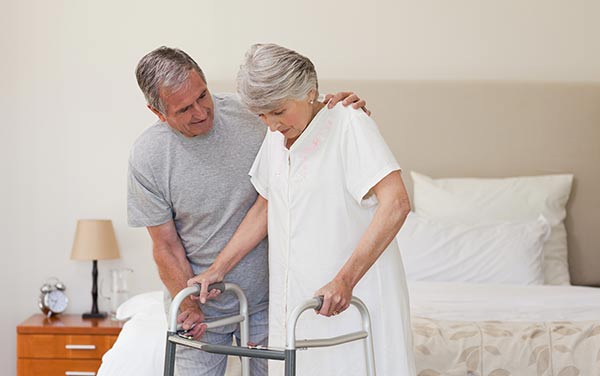Although not everyone makes detailed plans for it, we all have some expectations for what our lives will be like in the future. Nobody plans to have those expectations dashed by a sudden life-changing disability (or a chronic illness).
Maybe you were in a car accident. Maybe you fell off a roof. Maybe you were in the wrong place at the wrong time when violent havoc tore loose.
If life has dealt you a challenge card and you suffer from a disability, the hardest thing to do after a life-changing event may be to accept what has changed. Adjusting to your life’s new normal is your challenge.
Plan for an accident?
You had plans for, or at least ideas about, the future in your pre-event mindset. Before the event, your ideas of the future didn’t include being unexpectedly paralyzed or blinded or deafened or without limbs you’ve grown attached to. Who would actually plan for an unexpected event to result in these outcomes?
Well, nobody! It’s not surprising that you didn’t see your future with your disabled self in your mind’s eye. It’s a reality that may only be accepted at an intellectual level, but deep down, in your heart, you still see yourself operating in the world without a disability.
A Previous Life
Even people who have never endured a debilitating, life-changing event speak in terms of having had a previous life. The term might connote how life used to be when a person was younger or it might refer to an old vocation or avocation. A recovering alcoholic, for example, might refer to his or her drinking days as being a previous life.
Why? Because life was different back then. It was a different reality than the reality of here and now and tomorrow. While the person you are still endures, in some ways you aren’t the same person you once were. That’s okay. Who IS the same person they were ten years ago?
While you don’t need to completely abandon all of the plans or ambitions of your previous life, some of them may no longer be realistic. It’s not easy to swallow that reality, but the sooner you get it down, the sooner you’ll start feeling better.
Living Today
If you planned to free-climb parts of a mountain in Colorado, for example, your disability may render that option unrealistic, if not impossible, today. Maybe you planned to play basketball as you always have. Or have sex as you always have.
Although you may not be able to free-climb mountains, nothing stops you from going to Colorado and spending time in the mountains. Experience them as intimately as you can. They’re no less beautiful, aromatic, or tactile than they were before. You can still appreciate them, but in a different way.
Being in a wheel chair shouldn’t stop you from playing basketball. Lots of people in wheel chairs like to play basketball. The energy of the game is healthy. It may take a while to get the hang of it, but that’s true of most sports in the beginning.
Sex? Perhaps you have mobility problems or other issues that prevent you from engaging in the full range of activities you once enjoyed in the bedroom. That’s not a problem. There is a wealth of information available to help disabled persons continue to have a satisfactory sex life.
A New Normal
The longer you allow an unwillingness to accept today’s life to prevent you from accepting your new normal, the longer it will take for you regain your enjoyment of life.
The sooner you accept your reality, the more quickly you can make your new normal normal.
From there, you can still participate in many of the things you enjoyed in your previous life, you just might need to find a different way. Be creative!

